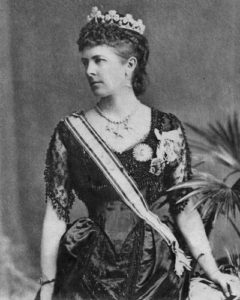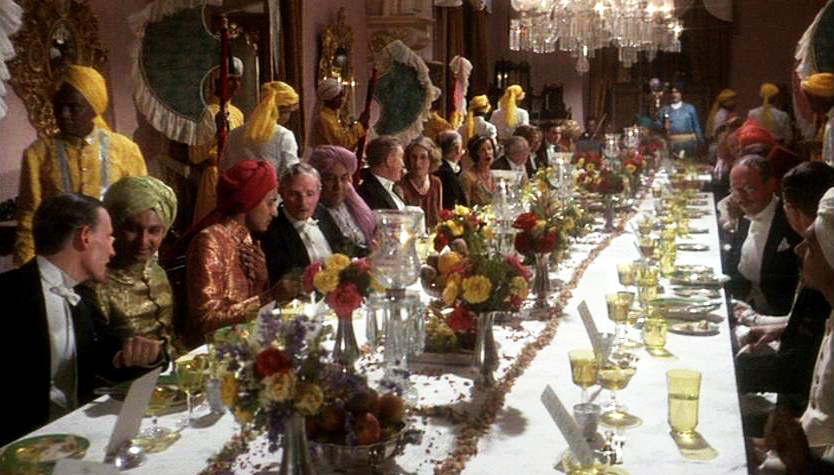When the conversation at dinner turned to picnics, Hariot Dufferin, Lady Dufferin, claims that a guest told her that poggle-khana was a common Bengali expression for a picnic. She was asked for a translation and was informed it meant “a fool’s dinner.”

Hariot Georgina Blackwood [Marchioness of Dufferin and Ava]
Had Blackwood looked for it, the word poggle-khana would not have been found. It’s nonsense, meant as a joke. However, since Blackwood repeated the dinner-table anecdote, many have accepted poggle-khana. Even now, this made-up word is accepted by Cassell’s Dictionary of Slang (2006) and Hobson-Jobson: The Definitive Glossary of British India (2013)
Featured Image: Dinner for twenty-eight or thirty guests. James Ivory’s Heat and Dust (1983)
See Hariot Georgina Blackwood [Marchioness of Dufferin and Ava] Our Viceregal Life in India: Selections from My Journal, 1884-1888. London: John Murray, 1889; Bithia Mary Croker. Mr. Jervis. New York: J.B. Lippincott, 1895; Henry Yule and A.C. Burnell. Hobson-Jobson: The Definitive Glossary of British India. Oxford: Oxford University Press, 2013. Jonathon Green, Cassell’s Dictionary of Slang. London: Cassell, 2013; Andrew Gailey. The Lost Imperialist: Lord Dufferin, Memory and Mythmaking in an Age of Celebrity. London: John Murray, 2015

